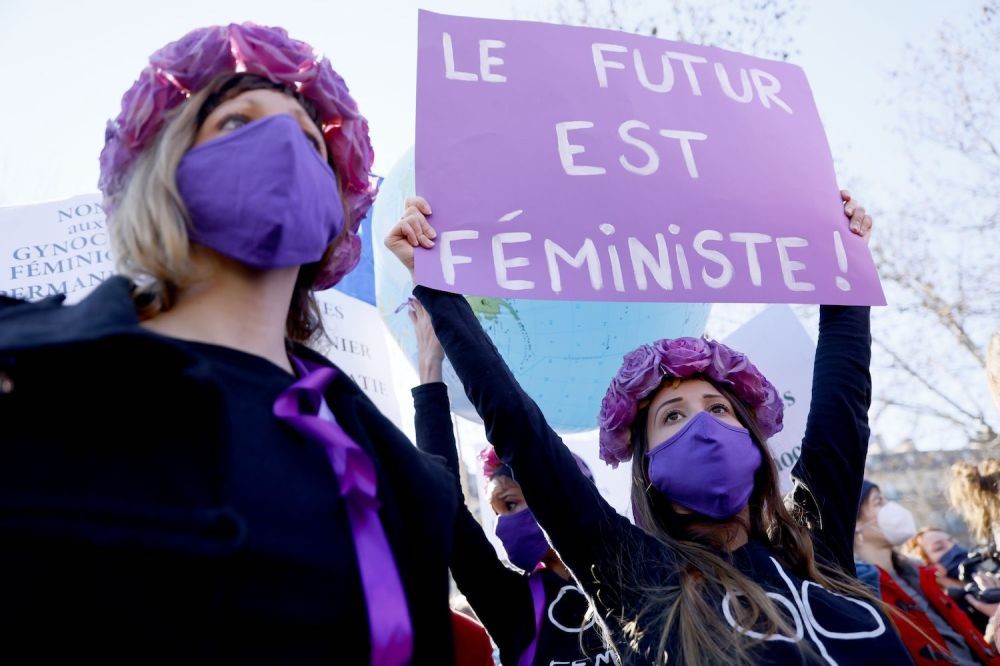The French Language: A Sexist Paradox?

Last semester, I took GES 108. I’m very conversant with written French to an extent, and going through this course, hearing the tutors re-explain things – especially related to ‘word gender,’ I couldn’t help but wonder what would be going on in France and other strong French-speaking countries due to the increase in gender equality activism and LGBTQ+ activity. I was sure there’d be a crisis over the written language, and guess what? I was right.
I had come across inclusive language before, though it hasn’t been incorporated into Nigerian French courses and isn’t being tested on in exams yet. Even in countries that are slowly accepting it, it is a lot. I mean, everything you know about written French has basically been tampered with, all because of inclusive language. The whole GES 108 text would be outrightly condemned and have to be rewritten from scratch if we were to follow inclusive language very strictly.
Here’s the thing, the French language is highly gendered, meaning that most nouns, adjectives, and pronouns have a masculine or feminine form. For example, the word for ‘teacher’ is ‘professeur’ in the masculine and ‘professeure’ in the feminine. The masculine form is also considered the default or generic form, used to refer to mixed groups or unknown individuals. Another example is the word for ‘students’; ‘étudiants’ in the masculine plural and ‘étudiantes’ in the feminine plural. However, if the group contains at least one male, the masculine form prevails. Thus, a group of 10 female students and one male student would be called ‘etudiants’. Some feminists and activists have argued that this linguistic system is sexist and discriminatory, as it makes women invisible or subordinate to men. They have proposed various ways to make the language more gender-neutral or inclusive, such as using feminine forms for professions, adding a median point (·) between the masculine and feminine endings, or using the letter ‘e’ as a suffix to indicate both genders. In such a case, the word for ‘friends’ would be written as ‘ami·e·s’ or ‘amis·es’ instead of the masculine ‘amis’ and gender-neutral articles such as –ille would replacethe traditional, la and le.
Much expectedly, these proposals have faced strong opposition from some French institutions, such as the Académie Française, the official authority on the French language, and the Ministry of Education, which sets the rules for schools and universities. They have argued that these changes are unnecessary, confusing, and harmful to the originality, clarity and beauty of the French language. They have also claimed that they are a form of linguistic activism that threatens the unity and identity of the French nation. Subsequently, decrees and memos have been issued, banning the use of gender-neutral or inclusive writing in official documents and academic settings. The full extent of reactions remains to be seen.
The debate over the French language and gender equality is not new, but it has gained more attention and intensity in recent years, especially with the rise of social movements such as #MeToo and a pro-LGBTQ+ consciousness. It also reflects the broader political and cultural divisions in France, between progressive and conservative forces, and between Paris and other regions. Some experts have suggested that the French language is not inherently sexist, but rather a reflection of the society that uses it. They have also pointed out that the language has evolved and can adapt to new realities and demands.
All in all, I believe France just shot herself in the leg. Considering the fact that they’re one of the countries at the forefront of promoting peaceful coexistence with the queer community, making such a move that degrades the originality of the language and can further widen the rift with the queer community, seems ill-advised.
Not to leave you hanging, as this is just to stimulate conversation, but to conclude, the place of the French language in gender equality is a complex, nuance-requiring issue that has no easy or definitive answer. It involves linguistic, historical, social, and political factors that are often intertwined and conflicting. It also raises questions like how much of a role language should play in shaping and expressing one’s identity and values. As a user of the French language, you have the opportunity and responsibility to participate in this debate and contribute to its evolution. Do you deem it unnecessary or are you perhaps inclined to agree with the activists? What do you think?




This piece is indeed great and worthy of debate. Talking about the generality of English language, it came not all at once, not at the inception and not even has the language reached a point of utter acceptance by all. Why? Languages are meant to evolve. If the third person singular pronoun “he” which was used for the masculine and feminine gender could be nullified so that a more selfless SINGULAR pronoun “they ” would be used for neutrality purpose in the history of English evolution, WHY NOT FRENCH?